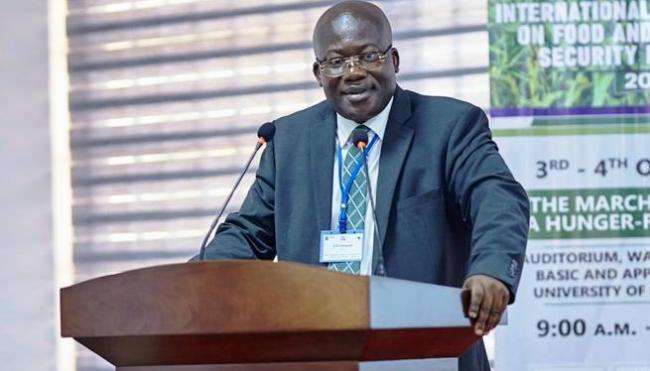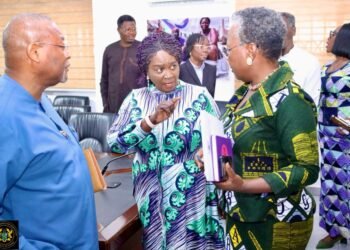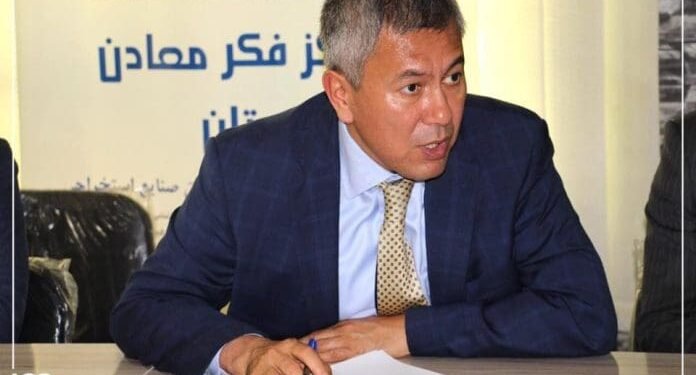Professor Eric Danquah, Founding Director of the West Africa Center for Crop Improvement (WACCI) has disclosed that a food-secure and healthy Ghana can’t be attained without investing in science, technology, and innovation (STI).
Ghana needs a comprehensive science policy that puts science on the top of the agricultural transformation agenda, Prof. Eric Danquah revealed.
“A food secure and healthy Ghana, ‘a Ghana Beyond Aid,’ can never be attained without huge investments in science, technology, and innovation (STI). If we fail to prioritize investments in STI in the agricultural development space, we shall continue to battle with the challenges of food and nutrition security.”
Prof. Eric Danquah
Ghana needs political will from its leaders
He interrogated why the government has not fully set up a fund to support science and technology research in the country, and added that Ghana has some excellent agricultural research institutions, including WACCI, which he founded about 15 years ago, that deserve more support.

“How long shall it take our Government to operationalize the National Research Fund Act, 2019, which was passed in Parliament and has received Presidential assent? At present, WACCI is one of the finest institutions in the world for training plant breeders at the Ph.D. level.
“Our past, present, and plans for the future provide compelling evidence that Ghana needs more agricultural Centres of Excellence. We need political will from our leaders and investments in first-class Centres of Excellence.”
Prof. Eric Danquah
He said the use of science for sustainable agriculture had been an essential subject to him because scientific knowledge allows us to develop new technologies, solve practical problems, and make informed decisions.
“We are still far from putting innovation in the hands of farmers. We know that even before the Covid-19 pandemic and the Russian-Ukraine war, Africa was not on track to meet Sustainable Development Goal 2 (on zero hunger). I dare say that our efforts today and tomorrow will come to nought if there was no political will for prioritizing the use of STI in our agri-food systems prioritization agenda.”
Prof. Eric Danquah
Ghana’s population to be 61 million by 2063
Prof. Danquah opined that Ghana’s population is currently 32.37 million as of 2022. By 2030, there would be an additional over five million mouths to feed, and by 2063, when Africa is predicted to become the rich continent we desire, our population will be over 61 million.
“This is alarming because crop yields are declining in farmers’ fields as a result of climate change, rains are falling at inconvenient times, floods occur unexpectedly, diseases and pests have become more destructive, and heat worsens issues in farmers’ fields. Soils are deteriorating. Reduced yields will require that we spend more foreign exchange (more than the current over $2.5 billion spent annually) to import additional food for people and animals. This is not efficient and effective, and not sustainable for several reasons.”
Prof. Eric Danquah
If for nothing at all, the Covid-19 pandemic taught Ghana that self-sufficiency in food production should be a national imperative if we are desirous about ending hunger, achieving food security and improved nutrition and sustainable agriculture in our lifetime, he noted.
“There is an urgent need for more food to be produced on less land with fewer chemicals. We must, therefore, use new thinking in our development agenda else we risk worsening the plight of a significant number of Ghanaians who go to bed hungry, who are malnourished and stunted.”
Prof. Eric Dnaquah
Prof. Danquah made these assertions at a science communication workshop in Accra organised by Alliance for Science, WACCI, International Institute for Tropical Agriculture (IITA), and the Open Forum on Agricultural Biotechnology (OFAB).
READ ALSO: Nine Pins Were Removed From Osei Tutu’s Throat- Mother of Deceased Kumawood Actor Reveals























